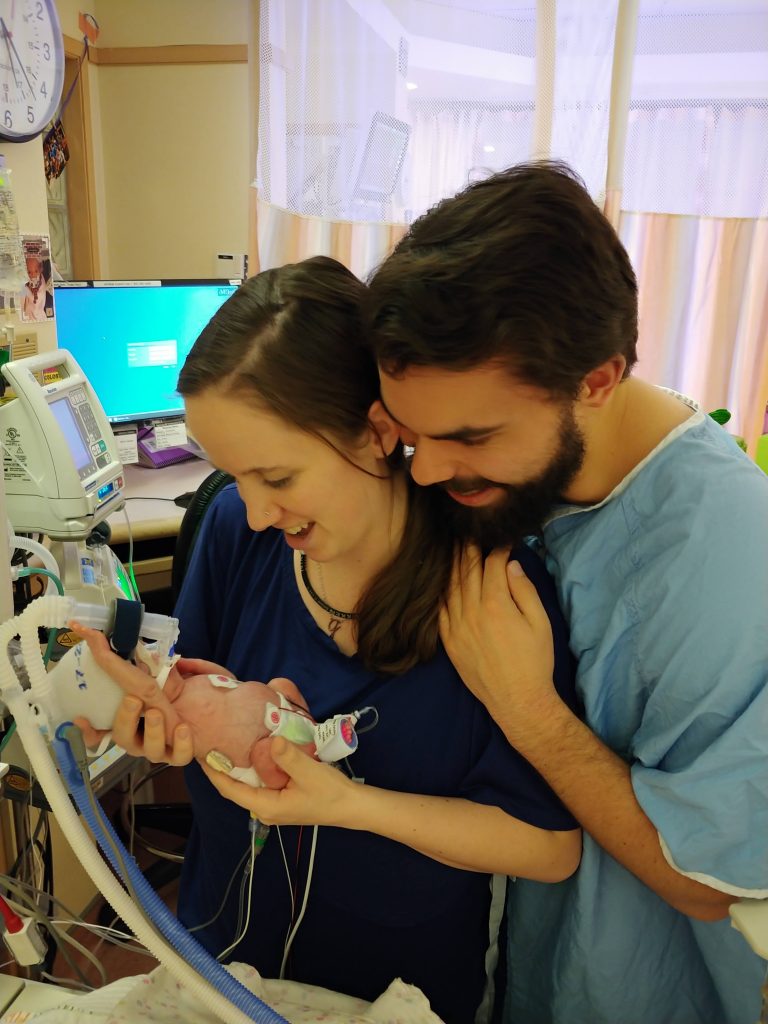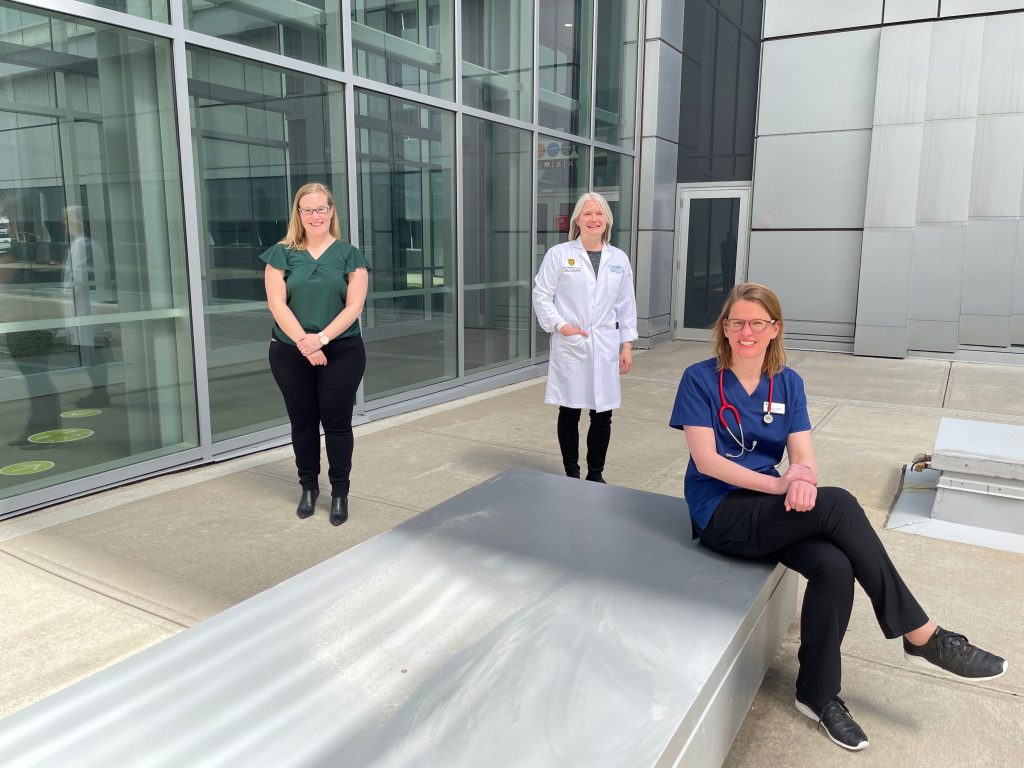The largest study to predict and prevent preterm birth is launching in Calgary thanks to your support!

During a routine ultrasound, Molly Wilding was not anticipating receiving news that would set her family on a rollercoaster and fearing for her daughter’s life. As a healthy young woman not carrying multiple children, there was no concerns that Molly would be at risk for preterm birth.
After their daughter, Gianna, was born at just 23 weeks and six days and spent over five months in the specialized critical care of the neonatal intensive care unit (NICU), Molly and her husband, Patrick, describe it as the hardest thing they have ever had to go through. An opportunity to support other families in early detection of preterm risk complications is something that Molly is excited about;
“Gianna’s unexpected, early birth was a complete shock to us. I was a healthy woman with no known warning signs during pregnancy, why was this happening?”, Molly explains.
“The days in the NICU were the most exhausting, terrifying days of our lives.
This important research will help to identify families, like ours, who are at risk for preterm births, allowing for earlier interventions and better outcomes.”
And now, the largest study of its kind is launching in Calgary.
Alberta has reached such a critical point in preterm births that more than 40 scientists and clinical researchers have launched an unprecedented initiative to find tangible solutions for families. Thanks to community support, $5 million in donations through the Alberta Children’s Hospital Foundation and Calgary Health Foundation is going to support the team aiming to increase global knowledge and provide immediate health benefits to expectant mothers and newborn babies in our community.
”At nine percent, our province has one of the highest preterm birth rates in the country,” says Dr. Donna Slater, child health and wellness researcher from the Alberta Children’s Hospital Research Institute at the University of Calgary.
“That means babies in our province are at higher risk of complications that contribute to impaired brain development, physical disability and neonatal death. For babies who survive, the effects of preterm birth can last a lifetime and change the entire course of their future.”

In the first phase of the initiative now underway, scientists are working in the lab to develop a blood test for rapid diagnosis. They will also use the power of advanced machine learning to generate personalized risk scores for pregnant women, enabling healthcare professionals to anticipate preterm births and provide care strategies tailored for individual families.
“By developing simple, cost-effective tools that families can access in the community, we have the potential to significantly shift care delivery and services for expectant mothers,” says Dr. Slater. “Ultimately, we want to help more moms extend their pregnancies and welcome healthier babies into their families.”
FAST FACTS: How your support is leading research for future families
Who? A team of University of Calgary scientists and care providers will be inviting 4,000 expectant mothers from Calgary and southern Alberta to participate in research that will take place throughout their pregnancy and up to one year after they have delivered their babies. Fathers and partners will also be encouraged to take part.
Why? Of the more than 17,250 babies born in Calgary each year, about 1,550 are born preterm. Over 1,200 of those preterm infants require specialized care within a NICU. In addition to the strain on families, the estimated annual healthcare costs associated with caring for preterm infants in Canada is $587.1 million.
What? The study will analyze biological samples, questionnaires about moms and their infants, and reviews of their medical records at predetermined time points.
When? Researchers have begun the first phase of their work and plan to enroll a larger number of participants as early as this summer.
Where? The study will be offered through Alberta Health Services (AHS) Calgary ultrasound clinics, outpatient obstetric clinics, obstetrical triage and general advertising in the community.
This research is part of Calgary Health Foundation’s Newborns Need investment.


